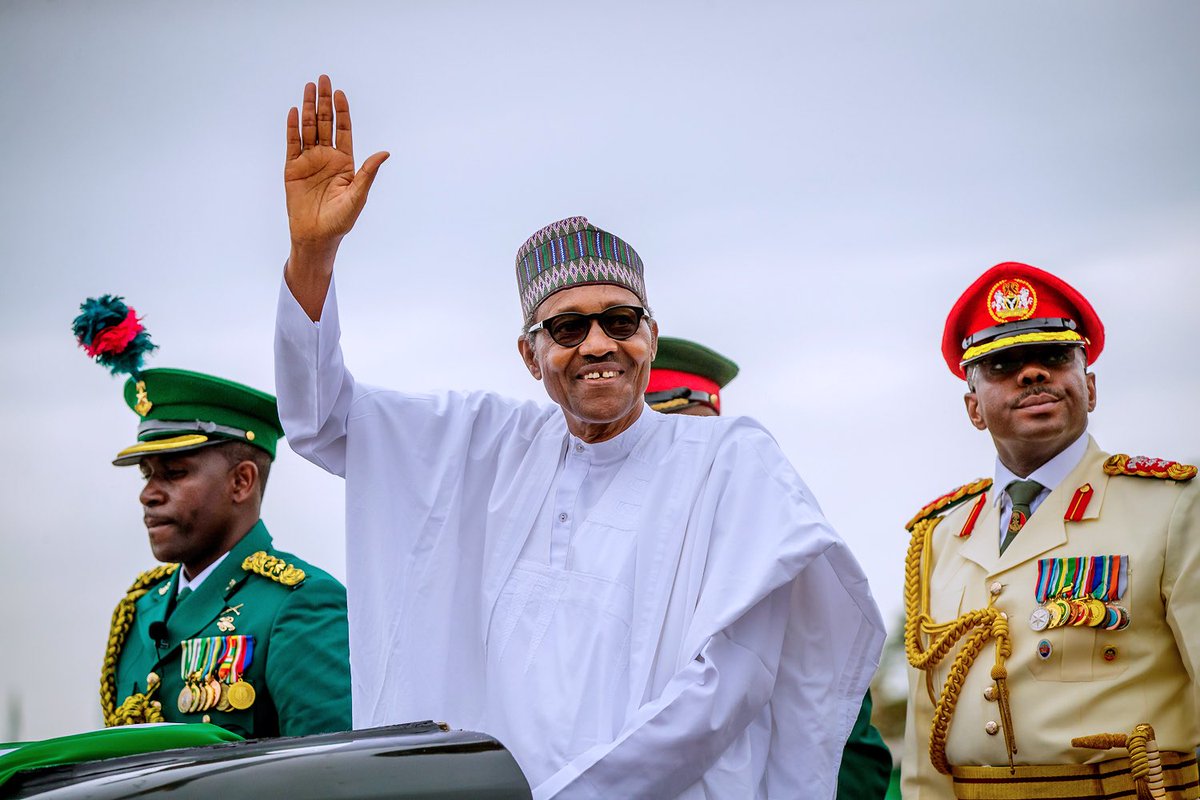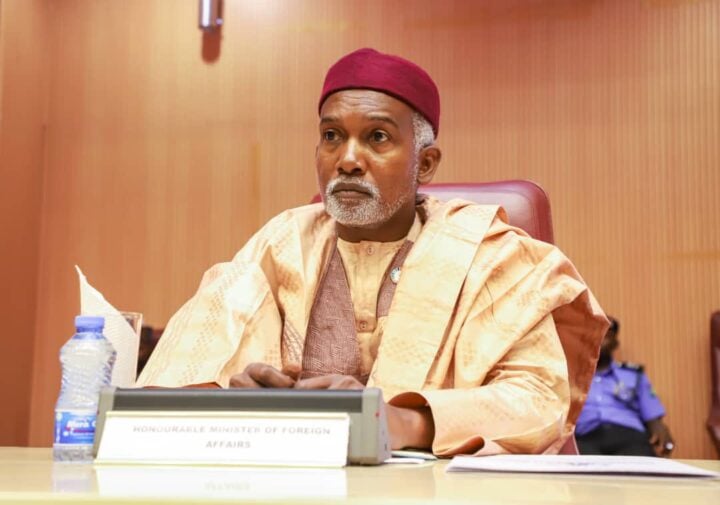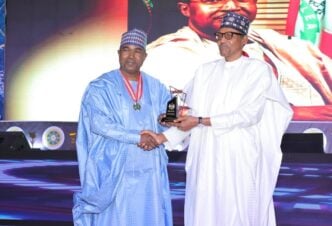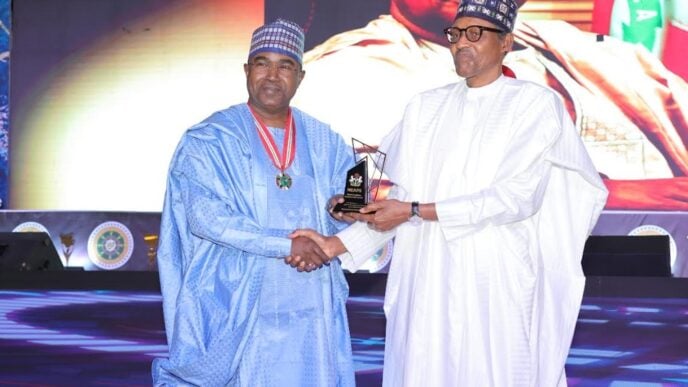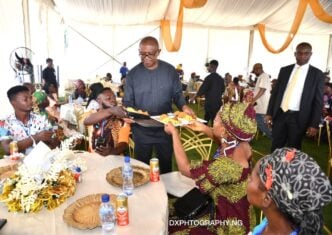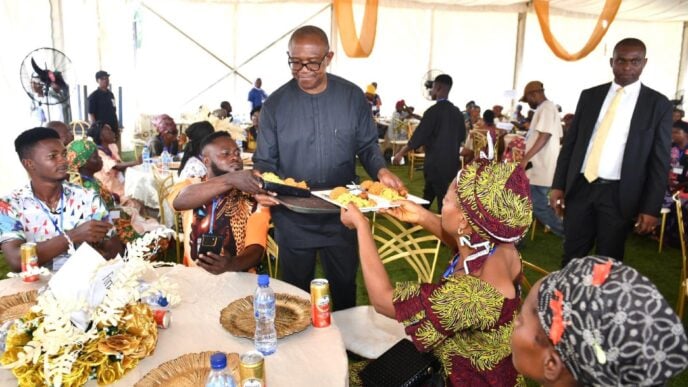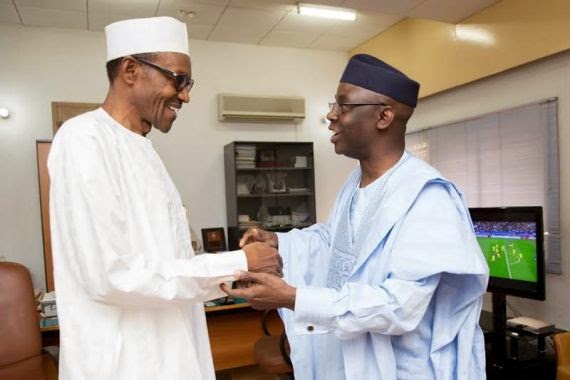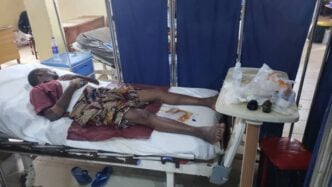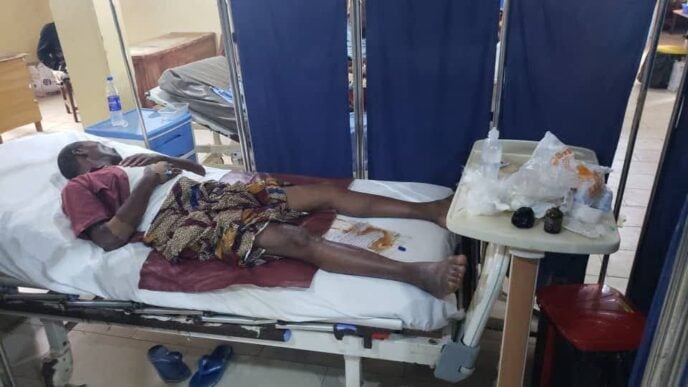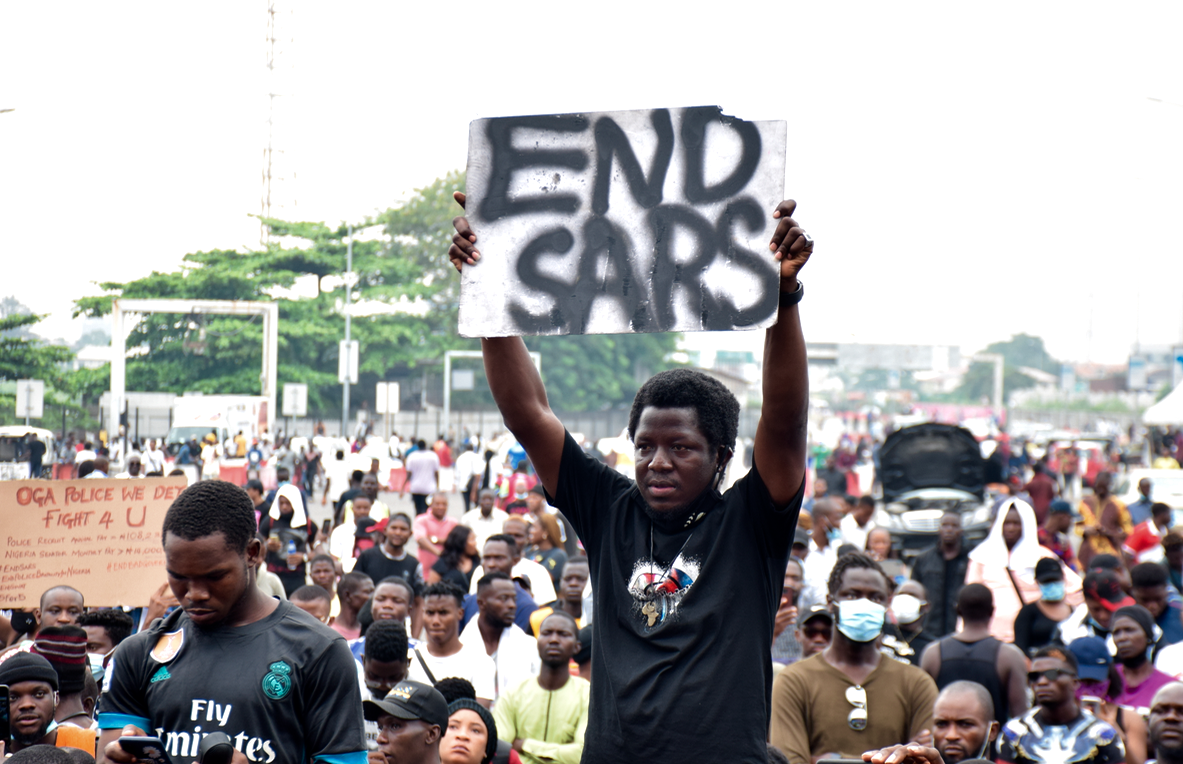Muhammadu Buhari (1942-2025)
He walked like a whisper through a marketplace of noise, unshaken by applause, unbent by insult. The Buhari in us rises early, eats humbly, and acts when both heart and head agree. He wore power like plain clothes, no embroidery, no excess, only weight. Discipline to him isn’t old-fashioned; it is the spine of a strong nation. Patriotism is not a chance; it is not the noise; it is a sacrifice. It is to say that I will not feast where my people starve; I won’t wave a flag I will not defend.
Those were the words of nine-year-old Muhammadu Buhari, named after Nigeria’s former president, delivered in a mellifluous spoken word performance at the launch of “According to the President: Lessons from a Presidential Spokesperson’s Experience”, a memoir by Garba Shehu.
His voice, steady and stirring, cast a momentary silence over the crowd. Young Buhari’s words about Buhari bore the sacred ring of truth, the endurance of legacy, and the grace of a tribute carved in reverence. The tribute lingered in the air, its message fresh, its cadence still echoing, when just days later, Shehu announced the passing of his principal, Major General Muhammadu Buhari.
During his inauguration speech on May 29, 2015, Buhari made the statement, “I belong to everybody and I belong to nobody”, which turned out to be the highlight of his talk, and one which people would hold him up to in the years that followed. It was his way of passing a message of his independence from political influence and an unflinched loyalty to his country.
Advertisement
Arguably the most popular leader from northern Nigeria in recent times, Buhari enjoyed and basked in an acceptance that he himself said he does not understand the reason for. Those who felt and espoused this overwhelming feeling of loyalty to him called themselves Buharists.
One man — Fulani, Hausa, Kanuri — Buhari was born the 23rd and last child to the family of Adamu and Zulaiha Buhari in Daura, Katsina — according to official records, and his account. His age, like his educational qualifications, was subject of controversy throughout his political career.
Buhari, named after the ninth-century Persian Islamic scholar Muhammad al-Bukhari, was raised by his mother, following the death of his father when he was about four years old. According to him, his most vivid recollection of his father was when, alongside his younger brother, the trio were knocked off a horse they were riding on.
Advertisement
He joined the Nigerian army at the age of 19, a move that would define much of his career and legacy. Buhari picked an interest in joining the armed forces after a career talk while in secondary school.
EARLY LIFE AND EDUCATION
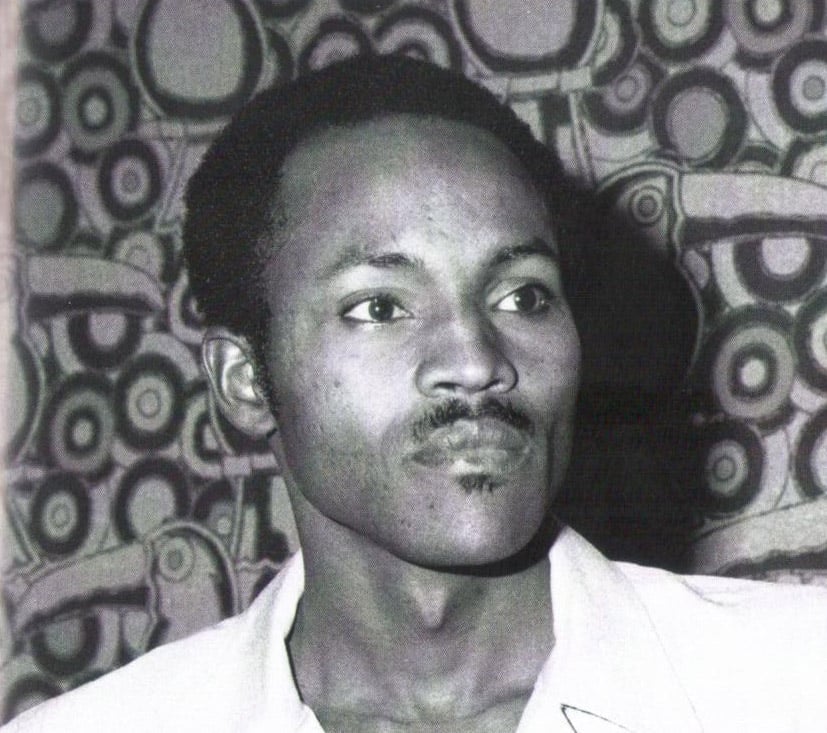
Buhari was born on December 17, 1942, in Daura, in present-day Katsina state. He began his education in 1948 at schools in Daura and Mai’Adua, completing his primary education in 1952. In 1953, he proceeded to Katsina Middle School, and later enrolled at Katsina Provincial Secondary School (now Government College, Katsina), where he studied from 1956 to 1961.
Upon completing secondary school, Buhari joined the Nigerian Army in 1961 and was admitted to the Nigerian Military Training College (NMTC) in Kaduna — an institution that would later become the Nigerian Defence Academy. His journey in military leadership began almost immediately.
Advertisement
In 1962, Buhari travelled to the United Kingdom for officer cadet training at Mons Officer Cadet School, Aldershot. He completed the programme in 1963 and was commissioned as a second lieutenant in the Nigerian army. That same year, he returned to Kaduna for the platoon commanders’ course at the Nigerian Military College, which he completed in 1964.
Buhari’s first major posting was as platoon commander of the Second Infantry Battalion in Abeokuta. He later attended the Mechanical Transport Officers’ Course at the Army Mechanical Transport School in Borden, England, in 1965, further enhancing his technical and logistical expertise.
His military education continued throughout his career. In 1973, he attended the prestigious Defence Services Staff College in Wellington, India. Between June 1979 and June 1980, he was at the United States Army War College in Carlisle, Pennsylvania, where he earned a master’s degree in strategic studies.
These postings placed him at the heart of national decision-making during periods of intense political and economic turbulence. His leadership style — firm, austere, and deeply nationalistic — began to take shape during these years, ultimately culminating in his emergence as head of state following the military coup of December 1983.
Advertisement
BUHARI THE MILITARY RULER

Buhari first entered the national political scene in 1976, when Nigeria’s then-military ruler, Olusegun Obasanjo, appointed him federal commissioner for petroleum and natural resources, a position equivalent to today’s minister of petroleum. Decades later, in a historical echo, Buhari appointed himself minister of petroleum during his democratic presidency.
Advertisement
Buhari’s rise to the top of the military hierarchy culminated in December 1983, when a coup ousted the civilian government of President Shehu Shagari, ending Nigeria’s second republic. At the time, Buhari was the general officer commanding (GOC) the 3rd Armoured Division, stationed in Jos, having just returned from the United States after attending the Army War College. Though not the face of the coup’s execution, senior officers, including Ibrahim Babangida, agreed on his leadership as a unifying figure, and he emerged as head of state.
His military rule, which lasted from 1983 to 1985, was defined by an austere governance style rooted in discipline, order, and anti-corruption. One of the most notable policies of the period was the “War Against Indiscipline”, a campaign as praised as it was feared, aimed at restoring civic order, punctuality, and patriotism.
Advertisement
But his regime was also marked by controversial decrees, including capital punishment for drug trafficking, currency counterfeiting, and unauthorised oil dealings. These measures, though popular with some, drew sharp criticism for their harshness and alleged disregard for due process.
Buhari spent only 20 months in power before being toppled during a bloodless coup led by Babangida who was his chief of staff.
Advertisement
In his 2025 autobiography, “A Journey in Service”, Babangida explained the motivations behind the coup, accusing Buhari and his deputy, Tunde Idiagbon, of cultivating a “holier-than-thou” attitude. He described their leadership as rigid and unyielding, saying the regime’s “draconian” decrees had led to abuse of fundamental rights and freedoms of the citizens. He also accused Buhari of turning Nigerians against the military and putting the military at risk of splitting.
Buhari was detained for over two years by the Babangida regime. In December 2017, he spoke on how he also ended up in jail after arresting and jailing others for corruption-related offences. Reminiscing on his military years during an interview with the United States Institute of Peace in 2015, Buhari joked about spending more years in prison than he spent in office as head of state.
He served as the governor of the north-east which is now six states, comprising Yobe, Borno, Adamawa, Gombe, Bauchi and Taraba, from August 1975 to February 1976.
On February 3, 1976, the north-east was divided into three states Bauchi, Borno and Gongola, and Buhari then became the first governor of Borno state from February 3, 1976 to March 15.
He was appointed as chairman of the Petroleum Trust Fund (PTF) in 1994 during the Sani Abacha military regime.
FROM KHAKI TO KAFTAN — BUHARI’S PURSUIT OF THE PRESIDENCY
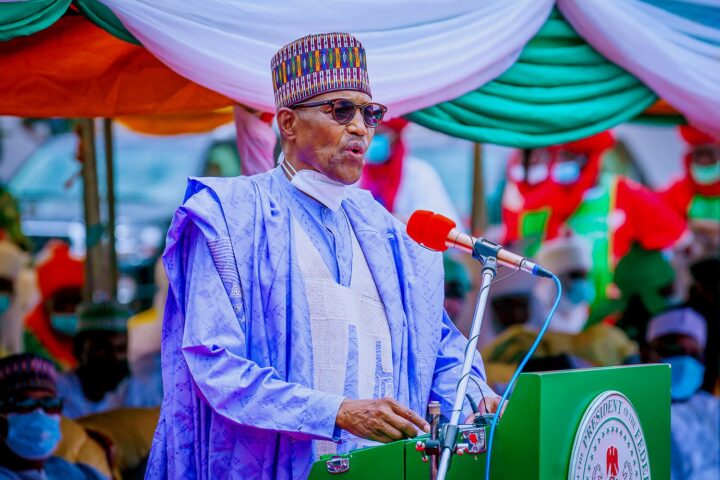
Thousands of kilometres away, the Soviet Union collapsed. This single incident had a profound influence on what would become Buhari’s subsequent political career.
Buhari said he came to the realisation that a multiparty democracy is the best form of government after the collapse of the Soviet Union. According to him, the “collapse of an empire in the 20th century without a single shot being fired” influenced his desire for post-military politics.
“I think what kept me trying on and on, in 1991 when I went home after serving my detention, I think I was underutilized. But then suddenly, the Soviet Union collapsed and that made a significant impression on me. An empire in the 20th century collapsed without a single shot being fired and everybody ran home and a three populist developed from the Soviet Union and that was when I was convinced having been in the military for 25 years that the multiparty democratic system was the best form of governance, with the caveat that elections must be free and fair. I’ve said this so many times because I believe in it. That was why I decided to become a politician and I registered as one in April 2002,” he said.
So, Buhari began his pursuit of presidential power, contesting and losing elections three times in 2003, 2007 and 2011. In each instance, he refuted the election results up to the supreme court, putting Nigeria’s laws and judiciary to the test. Oftentimes,when he addresses the press or an international gathering, he would speak of how he was “cheated” until technology came and vindicated him.
THE CHANGE PATRON WHO MADE POWER CHANGE HANDS
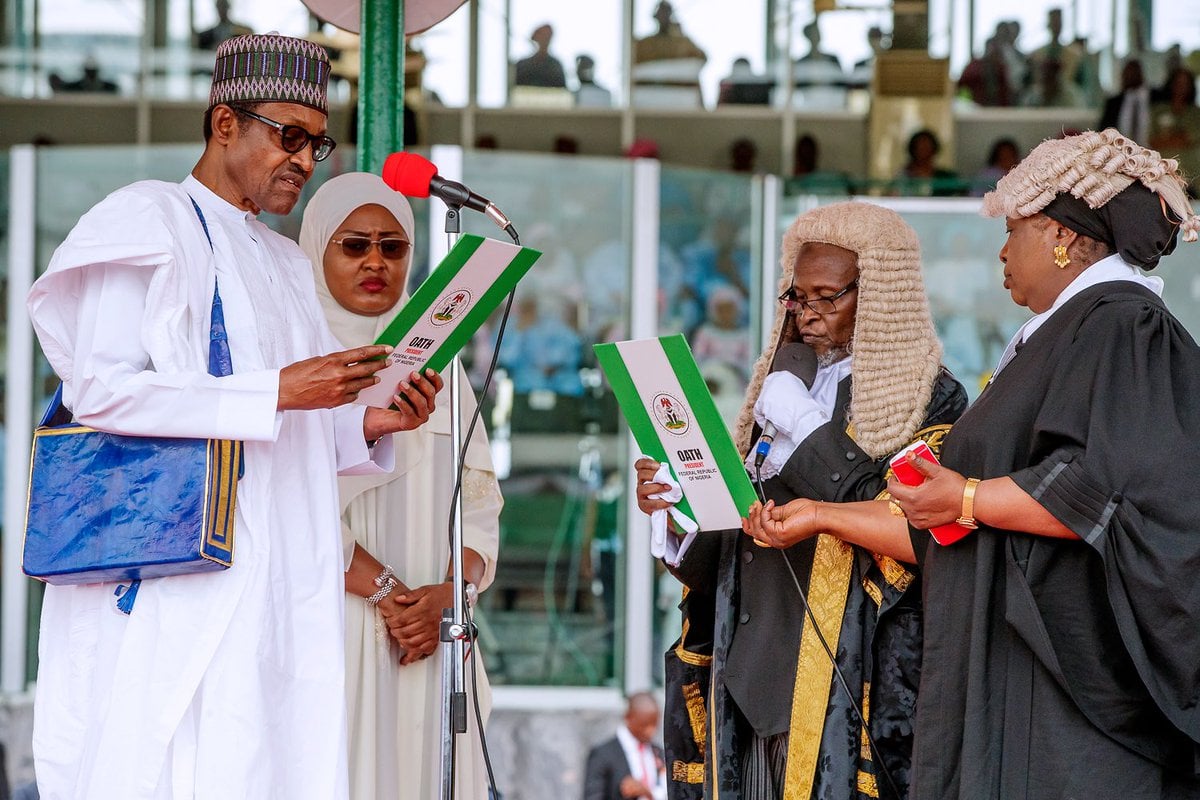
In 2015, Buhari made his fourth attempt at the presidency, floating his presidential campaign on the “change” mantra. He went to the polls, and power did change hands. He made history as the first person in Nigeria’s democratic history to dethrone a sitting president after he garnered 15,424,921 votes to defeat then incumbent president Goodluck Jonathan, who secured 12,853,162 votes.
Buhari’s victory also put an end to the PDP’s 16-year hold on political power in Nigeria.
He went ahead to win his reelection in 2019 and at the end of his second term in office, he came next to Obasanjo as Nigeria’s second longest serving leader, both civilian and military.
In total, Buhari contested five presidential elections.
‘BABA GO SLOW’ WHO INVESTED IN RAIL INFRASTRUCTURE
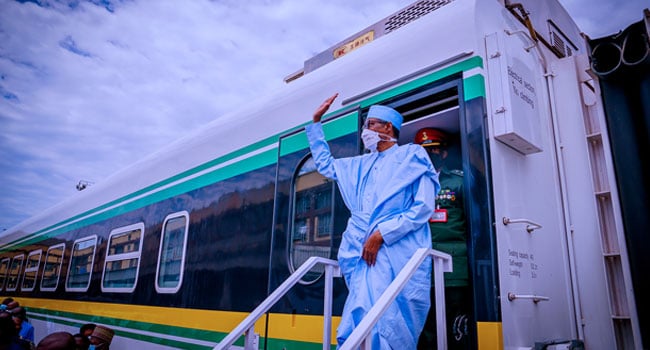
Buhari’s presidency had a rough start, with the country falling into recession in 2016 in part because of declining revenue from oil sales. This was further worsened by corruption and the rise of security threats like banditry and kidnapping.
He was dubbed “Baba Go Slow” by those who expressed dissatisfaction with the pace of his first term, after he said in 2018 that he was not in a hurry to take decisions. He also said a year later that he was going slowly because he wanted to survive, making reference to his military regime when he took decisions swiftly and eventually was ousted.
Some of the policies that shaped his administration include the controversial naira redesign policy, full implementation of the treasury single account (TSA), and land border closure.
At a private dinner organised by his family and close associates to celebrate his 80th birthday in 2022, Buhari said he did his best, but it was not enough.
He alleged that he was being “harassed” and that he would not miss his time in office.
Quizzed about the absence of a national carrier in Nigeria, Buhari said the country needed railways more than it needed airways.
“I like to teach patriotism with a lot of economic sense and common sense. I think for Nigeria, railways is more important than airlines. Railways can be used by people from different levels; fom cleaners in the office to permanent secretaries to ministers to the presidency but airlines is mostly for the elite, those that can afford to pay,” he said in this interview after winning the 2015 election.
“I’ll give Nigerian railways more priority over Nigerian Airways.”
His government completed the 186km Abuja-Kaduna standard gauge rail line and inaugurated it in 2016, and also completed the 327km Itakpe-Warri standard gauge rail which was inaugurated in 2020, 33 years after construction began.
In 2021, Buhari inaugurated the 157 kilometres Lagos-Ibadan standard gauge railway for commercial operations, among other rail projects.
In September 2020, the Buhari-led federal government approved the sum of N1.9 billion for the construction of a rail line linking Nigeria to the Niger Republic, a move he said will boost friendly relationship between both countries.
He also said like many Nigerians have cousins in Benin Republic, he also has first cousins in the Niger Republic.
“I told you the border between us and Niger is 1, 500km. I spoke to one French man and I had to tell him this. He spoke nonsense and I told him look, in 1885, you sat down and drew lines (boundaries). I said I have first cousins in Niger. There are Kanuris; there are Hausas; there are Fulanis in Niger Republic just as there are Yorubas in Benin. You can’t absolutely cut them off.”
MEDIA MOMENTS
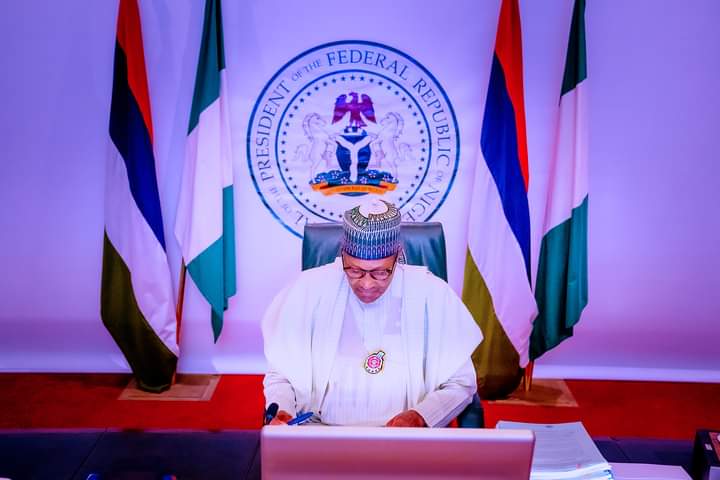
Buhari was never one for the spotlight, preferring the shadows of statecraft to the glare of media. Rarely did he speak directly to the Nigerian public, and when he did, the moments were few and far between — memorable less for their frequency than for the stir they created, often on international stages.
One of his most controversial media moments came in 2016, during a press conference with German Chancellor Angela Merkel. In response to an interview his wife, Aisha Buhari, had granted the BBC, where she criticised his administration and suggested she might not support his re-election bid, Buhari said his wife belongs in the kitchen and “other room”, a euphimism for bedroom.
The statement sparked global backlash and domestic uproar. Critics slammed the comment as sexist and demeaning, questioning why a sitting president would reduce the first lady to domestic roles in such a public forum. It also fueled speculation of a strained relationship between the first couple. Aisha would later say she “keeps talking” because she does not have intimate conversations with her husband owing to his lack of time.
In another instance, Buhari said at the Commonwealth Business Conference held in 2018 that many Nigerian youths just want to sit down and do nothing, banking on the notion that Nigeria is an oil-rich nation. The statement caused a social media revolt under the #LazyNigerianYouths movement.
‘JUBRIL OF SUDAN’

Buhari’s repeated medical trips to the United Kingdom became a defining subplot of his time in office that the country was nicknamed his second home, while “medical tourism” became a fancy word in Nigeria.
He spent at least 180 days in the UK seeking medical attention, spending as many as 152 days in the Queen’s land in 2017.
His frail health, frequent medical trips, and silence from the presidency grew one of the most bizarre political conspiracies in Nigeria’s democratic history. Buhari was rumoured to have died in several instances, one of which was in 2018 when it was said that Buhari had died during one of his medical trips and was replaced by a body double, an imposter allegedly named Jubril from Sudan.
The rumour first surfaced when the president returned to the country after spending 103 days in the UK, treating an undisclosed ailment.
When he first addressed the rumour, Buhari said some people hoped that he had died, but that he is “real” and would soon celebrate his 76th birthday.
In 2022, Buhari said the rumour was the work of some mischief makers to demonstrate their cheekiness, and that he did not find the joke funny.
On Sunday, Buhari eventually died in a London clinic in the UK, after initially being discharged from the intensive care unit.
In a 2014 interview with TheCable, Buhari, who was then a candidate for the 2015 presidential election, said he had achieved everything a Nigerian politician wants to be “although in khaki” at the time.
After leaving office, Buhari said he wanted to retire back to his Daura hometown, far away from Abuja, the seat of power.
In the end, the man who once vowed that he belonged to everybody and nobody now belongs to history.
From the dusty plains of Daura to Abuja’s marbled corridors of power, Buhari carved a legacy as layered and complex as the country he led. In the unfolding story of Nigeria and divergence of opinons, one truth stands firm: he was, and remains, unmistakably Nigerian.

